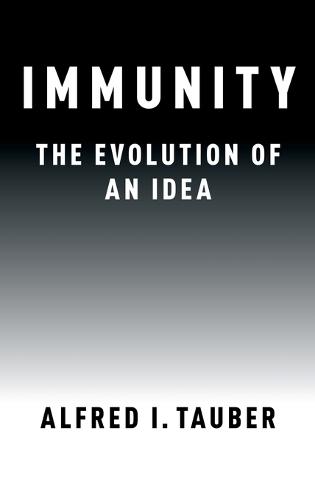Overview
Modern immunology traditionally conceives of the immune system as providing defense against pathogens. Alfred I. Tauber criticizes this conception of immunity as too narrow, because it discounts much of the immune system's other normal functions. These include active tolerance of nutritional exchanges with the environment and the stabilization of cooperative relationships with resident micro-organisms. An expanded account extends immunity's functional role from singular 'defense' to broadened discernment of environmental 'exchange.' This ecological perspective has profound theoretical implications, for the basic notion of immune identity is reconfigured: highlighting the organism as a holobiont (a consortium of diverse organisms living in cooperative relationships) challenges prevailing concepts of individuality and the self/nonself dichotomy heretofore organizing immune theory. Indeed, if theoretical interest is focused on the challenges of maintaining immune balance in the full ecological context of the organism, then immune regulation assumes new complexity. Tauber maintains that the key to unravelling that puzzle requires a critical re-assessment of the cognitive processes that underlie immune effector functions. Accordingly, he provides the outline of a re-formulated 'cognitive paradigm' that dispenses with agent-based models and adopts an ecologically conceived understanding of perception and information processing. The implications of this revised configuration of immunity and its deconstructed notions of individuality and selfhood have wide significance for philosophers and life scientists working in immunology, ecology, and the cognitive sciences.
Full Product Details
Author: Alfred I. Tauber (Professor of Philosophy Emeritus, Zoltan Kohn Professor Emeritus of Medicine, Professor of Philosophy Emeritus, Zoltan Kohn Professor Emeritus of Medicine, Boston University)
Publisher: Oxford University Press Inc
Imprint: Oxford University Press Inc
Dimensions:
Width: 23.60cm
, Height: 3.10cm
, Length: 16.00cm
Weight: 0.590kg
ISBN: 9780190651244
ISBN 10: 0190651245
Pages: 324
Publication Date: 09 March 2017
Audience:
College/higher education
,
Professional and scholarly
,
Tertiary & Higher Education
,
Professional & Vocational
Format: Hardback
Publisher's Status: Active
Availability: To order

Stock availability from the supplier is unknown. We will order it for you and ship this item to you once it is received by us.
Reviews
An obligatory reading for praticing immunologists, historians, philosophers and sociologists of science. Nelson Vaz, Professor Emeritus of Biology, Federal University of Minas Gerais
An obligatory reading for praticing immunologists, historians, philosophers and sociologists of science. Nelson Vaz, Professor Emeritus of Biology, Federal University of Minas Gerais Alfred Tauber updates discussions on some of the central questions of immunology in a most embracing manner, discussing general concepts and theories in their historical context, considering their origin and evolution, while bringing forth novel ideas and unexplored relationships between notions that, in one way or another, have been around, often thanks to Taubers writings. This is an excellent piece of scholarship, which, while theoretical, is attentive to empirical data and views, and makes a very significant contribution to the field. Antonio Coutinho Fred Tauber has provided a stimulating new interpretation of the development of immunology that shows how the discipline has begun to be embraced by biologys recent ecological turn. The result is a contextual view of immune cognition mediated by a dialectical interaction between organism and environment. This book will be of compelling interest to a wide audience including theoretical biologists and philosophers of science. Sahotra Sarkar, Professor of Philosophy and Integrative Biology, University of Texas at Austin Tauber, in his past books, taught us about the people, the ideas and the experimental pursuits that created the field of immunology. Todays applications of immunity to cancer, vaccination and cell therapies beget a new immunology. Tauber, in this book, ushers us into a new way of thinking. Irun R. Cohen, MD, Professor of Immunology, Emeritus, The Weizmann Institute of Science
Author Information
Alfred I. Tauber is Professor of Philosophy, Emeritus and Zoltan Kohn Professor of Medicine, Emeritus at Boston University, where he served as Director of the Center for Philosophy and History of Science from 1993 to 2010. Author of The Immune Self (Cambridge 1994) and co-author of Metchnikoff and the Origins of Immunology (Oxford 1991) and the Generation of Diversity (Harvard 1997), he has also published extensively in ethics and science studies.




